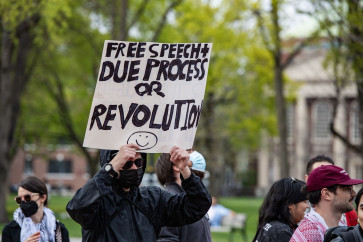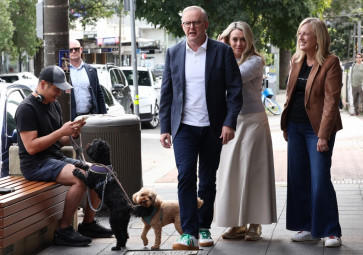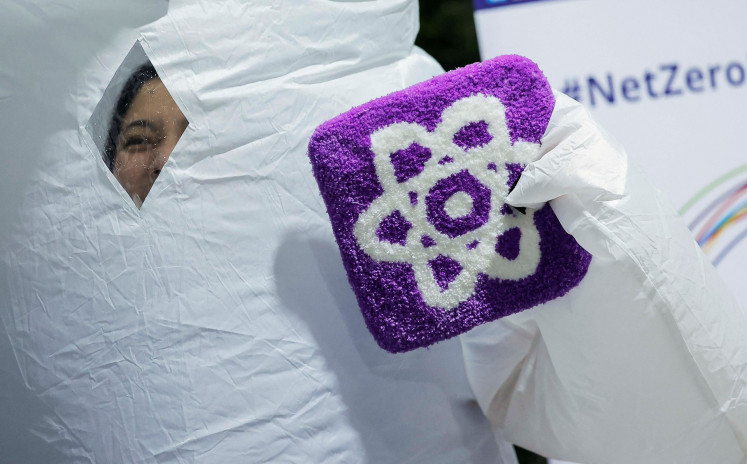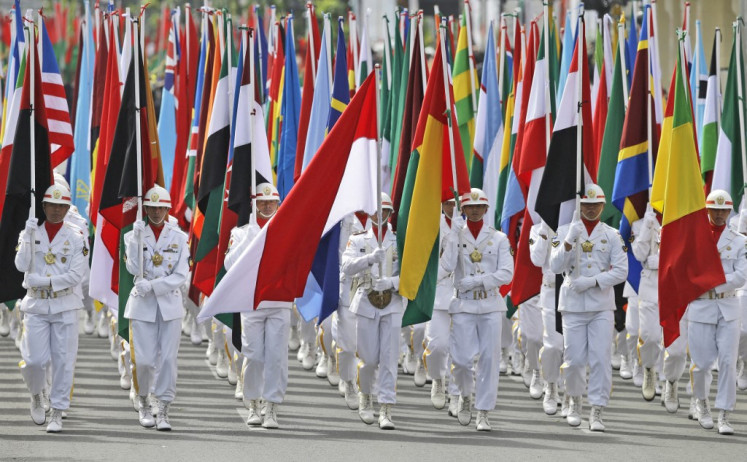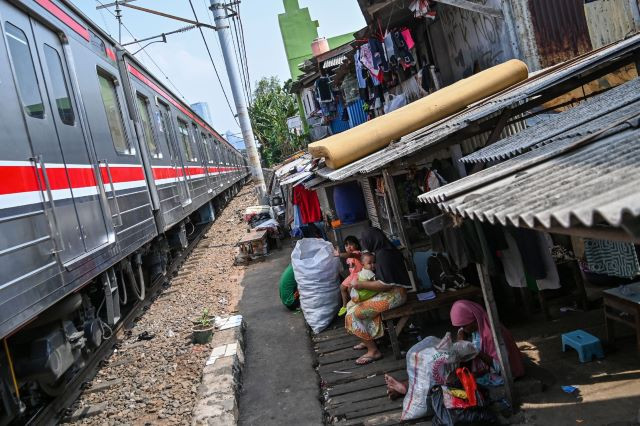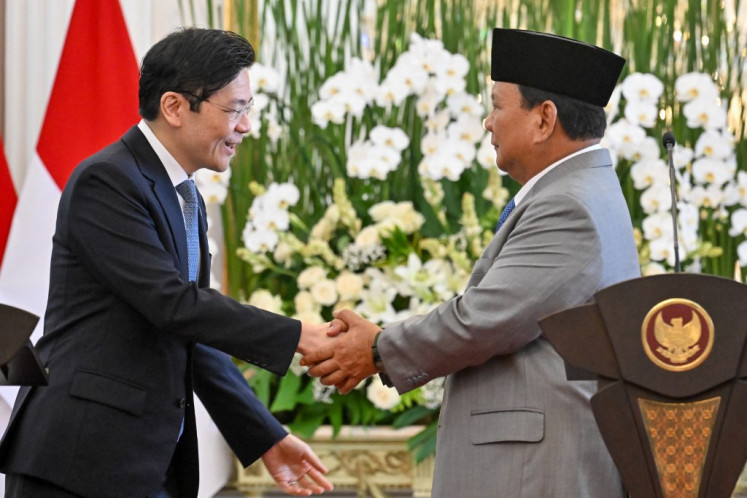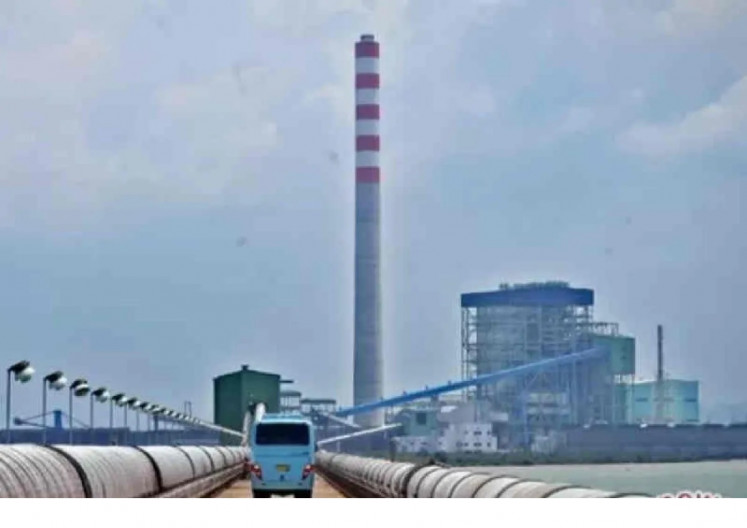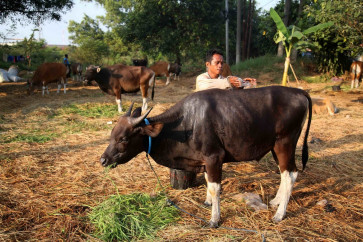Analysis: Protests erupt over transfer of beef import quota to SOEs
Change text size
Gift Premium Articles
to Anyone
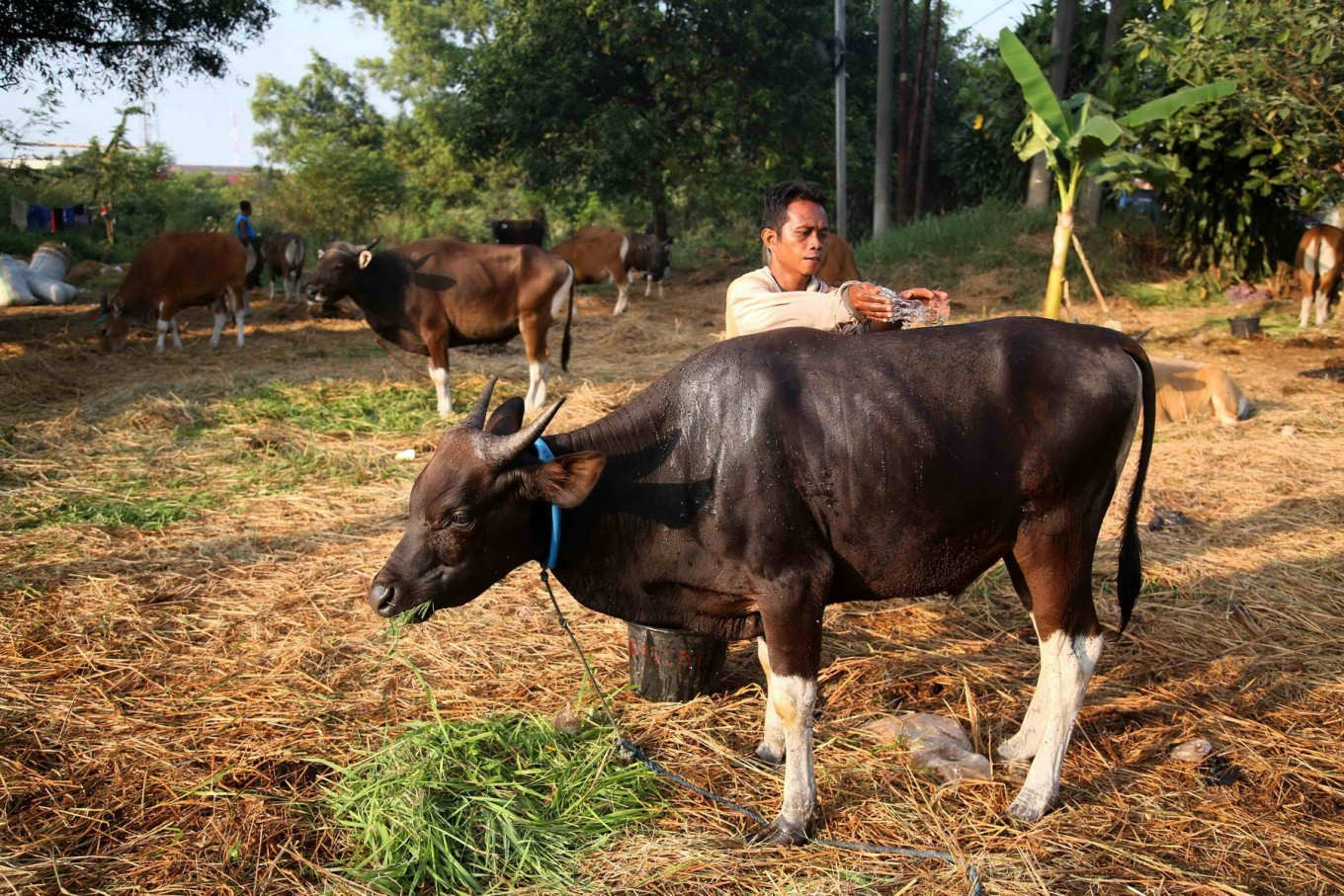 Livestock trader Tarmizi washes a cow at a sale site for qurban (animal sacrifice) livestock in Cileungsi, Bogor regency, on July 22. Tarmizi and his colleagues shipped at least 40 cattle from their hometown in Bima regency, West Nusa Tenggara, to Tanjung Priok Port in North Jakarta. In line with COVID-19 health protocols, they had to pay Rp 600,000 per person to obtain health certificates to be allowed to board the ship. (JP/P.J.Leo)
Livestock trader Tarmizi washes a cow at a sale site for qurban (animal sacrifice) livestock in Cileungsi, Bogor regency, on July 22. Tarmizi and his colleagues shipped at least 40 cattle from their hometown in Bima regency, West Nusa Tenggara, to Tanjung Priok Port in North Jakarta. In line with COVID-19 health protocols, they had to pay Rp 600,000 per person to obtain health certificates to be allowed to board the ship. (JP/P.J.Leo)
T
he government's last-minute decision to redirect 100,000 tonnes of the beef import quota, or 60 percent of the 180,000-tonne total quota, to state-owned enterprises (SOEs) PT Berdikari and PT Perusahaan Perdagangan Indonesia (PPI) has sparked protests from private importers, which argue the move will severely impact the industry. The government also has allocated an extra 100,000-tonne buffalo meat quota for Indian imports that excludes private importers.
According to Presidential Regulation No. 61/2024, the deadline for determining import quotas is October of the year before the commodity balance sheet takes effect. Private importers say their import plans were submitted in September 2024, but the government has based its 180,000-tonne import quota decision on the 2025 commodity balance sheet. Afterward, the National Food Agency (Bapanas) notified importers of their quota allocations on Jan.13.
However, the government abruptly revised the quota this month, shifting 100,000 tonnes of the beef import allocation to Berdikari and PPI, leaving only 80,000 tonnes for private importers. To compare, 86 private importers imported 160,000 tonnes of beef last year. Their allocation now slashed, many importers are facing empty storage facilities and potential layoffs.
The government says it transferred the quota to Berdikari and PPI to stabilize beef prices in the market. However, the Indonesian Beef Processing Industry Association has warned that granting SOEs the bulk of import rights could lead to higher prices due to additional layers in the supply chain. Berdikari and PPI distribute imported beef through intermediary PT Suri Nusantara Jaya (Suri Group), which could drive up costs.
In addition to the 180,000-tonne beef quota, the government has allocated another quota of 100,000 tonnes for buffalo meat from India to be handled by Berdikari and PPI, entirely cutting out private importers.
The decision to import buffalo meat from India has raised food safety concerns, particularly regarding foot-and-mouth disease (FMD). India has not been declared FMD-free and Indonesia, suffered an outbreak in 2002 after it had been free of the disease since 1990, allegedly due to buffalo meat from India. Despite the potential risk, the government continues to source 100 percent of the country’s buffalo meat imports from India to maintain bilateral trade balance.
Indonesia has enjoyed a significant trade surplus with India, mainly due to coal and palm oil exports, recording a US$13.6 billion trade surplus in 2023, slightly lower than $14 billion in 2022.


